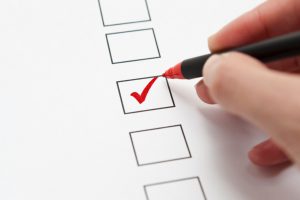At present, volunteer participants in clinical studies are required to visit a clinic to meet with a health care professional who collects information for the study. Such visits are time-consuming for both the volunteers and the staff and they may prevent less mobile people from participating. Home assessments using methods or technology such as the U.S. Postal Service, telephone, or an electronic kiosk may be a better way to assess participant changes and record study information.
Legacy Study (STUDY CLOSED)
The Home Based Assessment study is evaluating these three in-home types of information gathering. The study will determine how practical it is to use each method and if the three methods of gathering information can detect a change and a rate of change in the volunteers?cognitive and functional capabilities over time. The final analysis will compare these methods to the traditional way of collecting information in a clinic setting. Drs. Mary Sano at Mount Sinai School of Medicine, Jeffrey Kaye at Oregon Science and Health University and Steven Ferris at New York University are co-directing the study.
The study is recruiting 600 volunteers nationwide for this four year study. Each participant is given an initial in-person assessment to determine if they are eligible. This will include a medical history and physical, neurologic and cognitive exams, and other tests. A small sample of blood is taken and stored to assess future biomarkers. Those who are eligible are randomly assigned to one of three information gathering methods: mail, telephone Interactive Voice Response (IVR), or electronic home kiosk.
All participants are given a multi-vitamin to be taken twice a day and are asked to complete experimental assessments via their method (mail, telephone or kiosk) at specified monthly, quarterly or annual intervals. Some participants will be asked to complete another in-person assessment and at the end of the study all participants will be seen again in person.
Eligibility Criteria:
Age 75 and older
English Fluency
Able to live independently in a community dwelling
Have normal Memory
Willingness to take multi-vitamins provided by the study that comply with FDA Recommended Daily Intakes for the study age group.
Able to answer and dial a telephone; have access to secure mail, possess minimal computer skills or a willingness to learn.
A study partner is desireable but not required

Explanation of three methods:
Mail and Live Telephone: Participants in this arm mail in questionnaires and a cognitive performance assessment is performed by a live telephone interviewer. Vitamin adherence is monitored by a written log which participants return by mail with other mail-in assessments.
Interactive Voice Response (IVR): Participants enrolled in this section are asked to answer questions via an automated phone system using IVR and key-pad response. This telephone technology is being used in many businesses such as airlines that provide flight information, banks that provide customers with their account balances and payments, and pharmacies that renew prescriptions over the telephone. The telephone equipment is installed in the participants?homes at no charge. Vitamin compliance is monitored with telephone key pad responses.
Kiosk: Participants in this arm use a special device that researchers install in their homes at no charge. Participants do not need prior computer experience and are given instruction for use. The device resembles a small desk-top computer and operates much like an ATM machine. The machine uses touch screen responses and automatic speech recognition to record answers. Pre-recorded instructions are delivered through a telephone and displayed on the screen. The arm also uses the MedTracker, an instrument pill container that records when a participant removes vitamins.
Clinical Study Research Sites Participating in the HBA Study:
|


